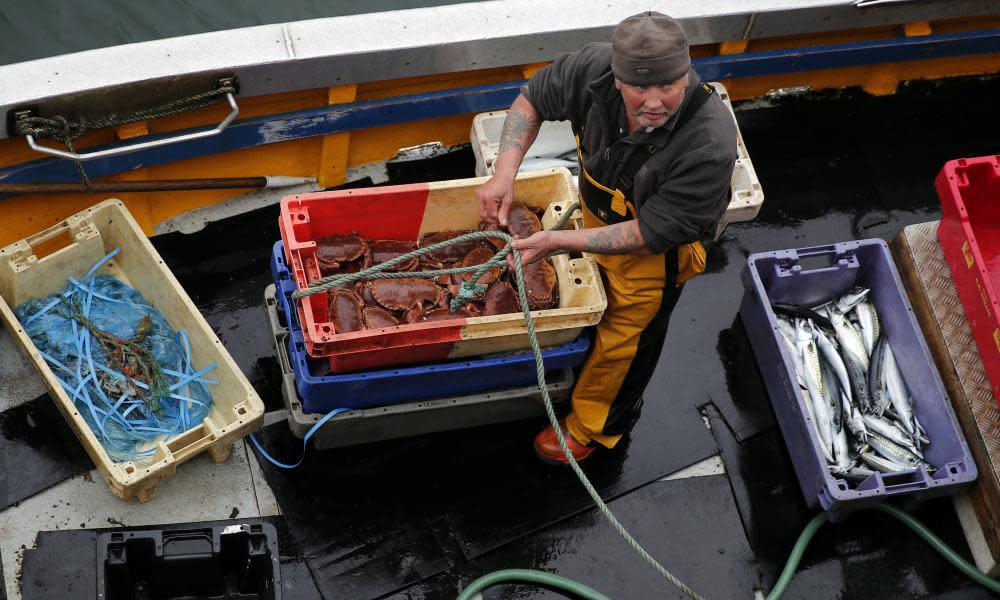Now Brexit is sealed, Scotland plunges into battle for the narrative

For those stalwart Scottish independence activists still online on Christmas Eve afternoon, the message could not have been simpler: the only way to escape the disaster of Brexit is to leave the UK at the earliest opportunity.
Brexit has significantly changed the nature of support for independence since 62% of Scotland voted to remain in the EU in 2016, against the UK grain, but the question remains whether the conclusion of a post-Brexit trade and security deal will shift voter sentiment further.
While the expected “Brexit bounce” did not materialise immediately, with voters dubious about inviting further constitutional uncertainty, polls have shown a steady increase in support for independence over the past four years.
After the Brexit vote, there was some counterbalance between Scots who voted remain and then moved from no to yes on independence, and those disenchanted leave voters who abandoned their nationalist sympathies.
Since then the increase in support for independence has occurred among remain and leave voters, as a surge this year saw independence support reaching as high as 58% in the polls, attributed in part to the SNP leader, Nicola Sturgeon’s impressive management of the pandemic.
It may be some way off the convincing proportions that some in the pro-independence camp believe they must secure to avoid Brexit-style division, but it has nonetheless put the Westminster cabinet on a war footing.
Whether the deal itself would increase support for independence would turn on whether Scots’ dissatisfaction with Brexit was already “baked in” to polling numbers, said Sir John Curtice, the veteran analyst and professor of politics at Strathclyde University.
“It depends what happens over the next few months and whether the change becomes a friction that grates, for example if Dover is still bunged up, people’s post-Covid [pandemic] flights are cancelled and they get enormous mobile phone bills.”
The battle now is for the narrative: while the Scottish Conservative leader, Douglas Ross, was quick to trumpet an end to “the hated” common fisheries policy, Sturgeon was already arguing that fishers had been shortchanged.
The SNP will seize on examples of specifically Scottish detriment in the detail of the deal, such as the exclusion of seed potatoes, a premium Scottish export.
The first significant test of who is winning that battle will be May’s Scottish parliament elections, where the SNP is already forecast to win a Holyrood majority that many believe will make the case for a second independence referendum unanswerable.
Related: Keir Starmer to whip his MPs to support 'thin' Brexit deal
For Curtice, UK Labour’s support for the Brexit deal when it is put before parliament next week could make campaigning difficult for the Scottish party, which was hampered in the last general election by the UK leadership’s stance on Brexit.
“If Labour want to appeal to the Scottish electorate after voting for a deal, that’s going to be very difficult. Remain voters unhappy with Brexit are unlikely to go to Scottish Labour, and the SNP has already gobbled up a large proportion of them.”
At the last Holyrood elections, held just before the Brexit vote, the former Scottish Tory leader Ruth Davidson’s opposition to Brexit allowed her to effectively put distance between the Scottish Tories, their UK counterparts and Boris Johnson himself, the man who remains – for many Scottish voters – the embodiment of Brexit.
Her successor is well aware of the Brexit effect on independence support, but Scottish Tory strategists believe they can effectively neutralise continued criticism of Brexit by pointing to the division and chaos that another independence referendum could bring – as well as the practical uncertainties of independence as a route back to the EU.

 Yahoo News
Yahoo News 
